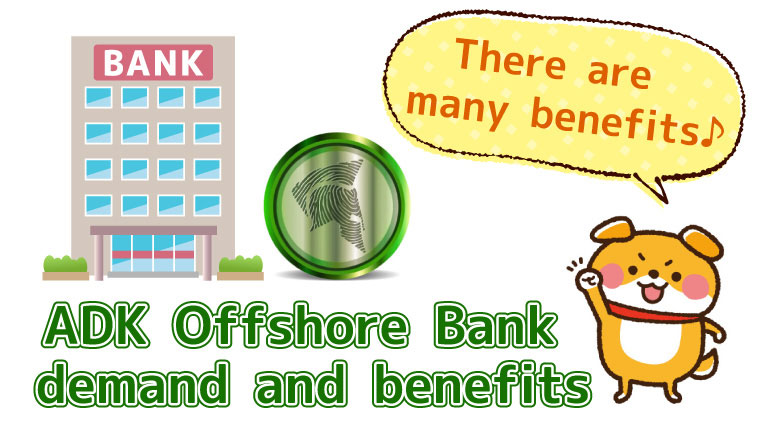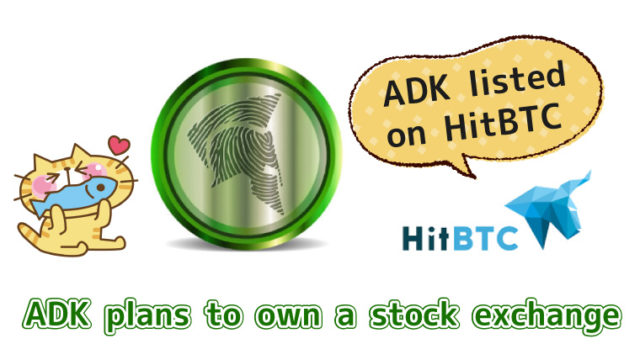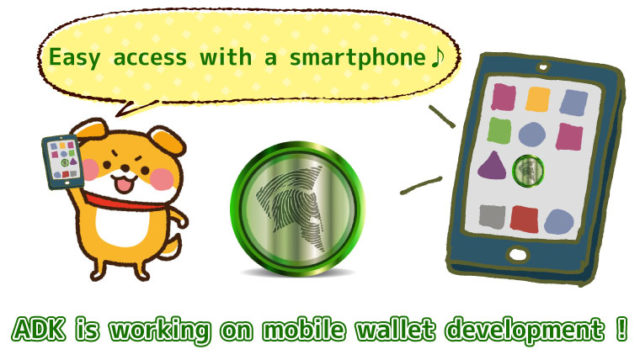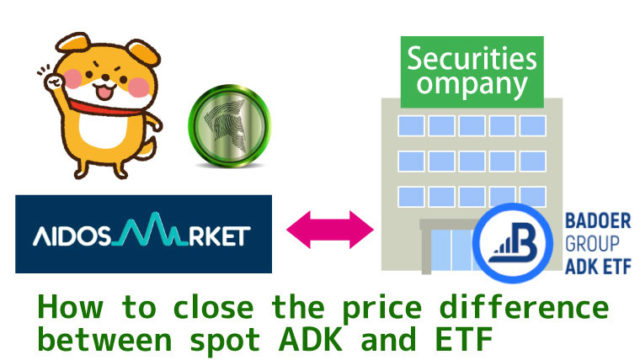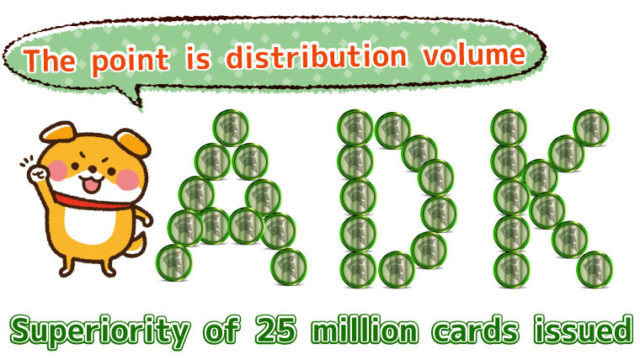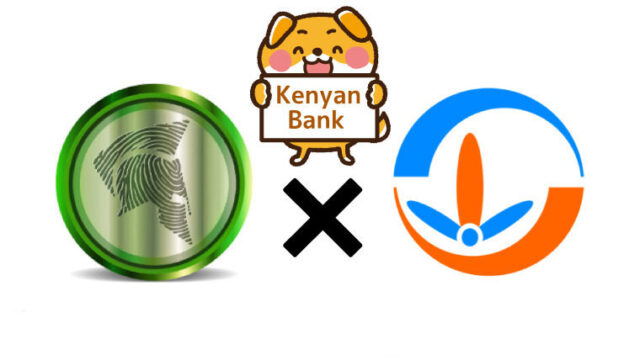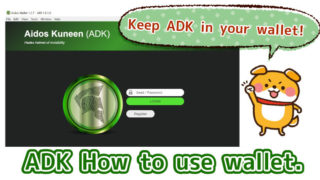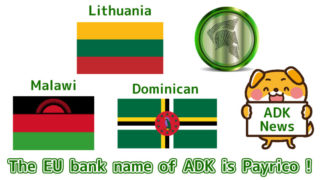This article translated what I wrote in japanese into English. Although it may be unclear by the expression of English, if you read this article you can grasp the image of ADK(Aidos Kuneen)
Contents
What is an offshore bank?
Will you save tax?
If you have heard of offshore banks, many of you may have the following image.
This is a big mistake. (in Japan’s case)
Under the current Japanese law, if you open an account with an offshore bank and generate interest and profits, you will be required to report it to the tax office because you will be taxed. In other words, if you do not report (final tax return), you will be charged additional taxes.
ADK offshore banks have high interest rates
In Japan, the annual interest rate is 0.001%. .
And founder Don says ADK’s offshore bank will have an annual interest rate of 10%. Furthermore, the annual interest rate of 10% seems to be earned monthly by split.
Risk reduction through asset diversification
It is risky to have assets only in Japanese banks and in Japanese yen alone. What if the Japanese yen crashes, hyperinflation, the collapse of Japan, or the bank collapses?
Not only Japanese but people all over the world apply to this risk.
The act of holding all assets in one currency and depositing all assets only in one bank involves considerable risk.
I think that the more assets there are like the wealthy, the more assets will be distributed. Assets such as Japanese yen, dollars, euros, stocks and cryptocurrencies are distributed and used by multiple banks. That is the norm.
The Republic of Zimbabwe has experienced hyperinflation since 2003, and its official currency, “Zimbabwe dollar”, has lost its value.
Later, on 11 June 2015, the Republic of Zimbabwe officially abolished its own currency. In other words, you can no longer use your own currency.
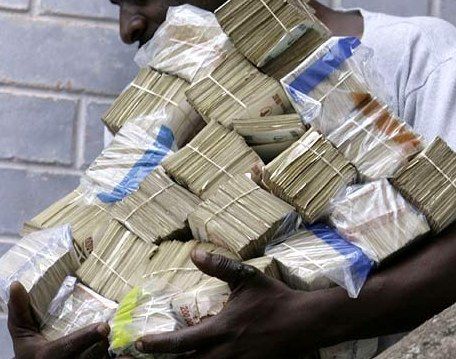

This may be an extreme example, but having full confidence in your home currency is somewhat risky.
It is unclear what will happen to Japan in the future. The national debt is over 1000 trillion yen. One day suddenly a deposit blockage may be carried out.
Deposit blockade in Japan actually took place in 1946. Due to financial difficulties, measures were taken to prevent the withdrawal of more than a certain amount of national deposits.
In other words, Japan has forcibly closed national deposits and repaid debts. At that time, a property tax was applied, and those with cash more than 100,000 yen (about 900 dollars) were forcibly collected at a rate of 25-90%.
- March 4, 1933: USA
- February 16, 1946: Japan
- March 15, 1990: Brazil
- December 1, 2001: Argentina
- July 30, 2002: Uruguay
- March 16, 2013: Cyprus
As a countermeasure against such risks, it is recommended that you do not own assets in your own currency, but distribute them in dollars, euros, stocks, bitcoins, ADK, etc., and use multiple banks for storage.
High confidentiality and security level
Offshore banks are characterized by high confidentiality and high security. In other words, it is difficult to know that your government has an offshore bank account.
By doing so, for example, even if the government goes bankrupt, the information on the offshore bank account is unknown to the government, so you can protect your assets.
About AEOI
Although it is an offshore bank, in recent years a system to disclose accounts (AEOI) has been established. This means that when you create an account between countries that are members of AEOI, the account information is automatically sent to your country.
AEOI knows your offshore bank account and the government knows how much balance you have.
The project is progressing so that ADK can acquire and consolidate banks from non-AEOI member countries and open online accounts via online banking.
In other words, since it does not flow information of the financial account, it means that anonymity is very high and assets can be safely protected.
Of course, ADK’s offshore bank will also perform KYC (document verification for identification), but will not disclose that information.
Currently, ADK has already acquired two banks, Kenya’s “Sumac Bank” and Tanzania’s “Hakika Bank”, which are non-AEOI member countries, under the audit and approval of the central bank. In addition, Ugandan, Ethiopia and EU banks are scheduled to be acquired.
ADK is used as a means of remittance
Even if you open an offshore bank account in a non-AEOI member country, you will know where the money was sent from the money transfer history.
Since ADK is highly anonymous and untraceable, you can use ADK when sending money to protect your privacy and keep your assets safe.
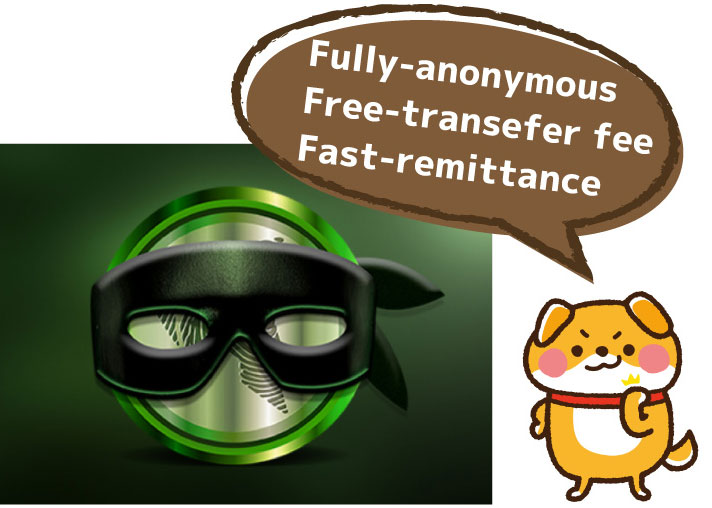

Since ADK uses DAG technology instead of blockchain technology like Bitcoin, remittance fees are free.
Here’s a quick introduction to how ADK sends money to offshore banks.
- Open an online banking account with ADK’s offshore bank
- Buy ADK
- Send ADK to an exchange linked to an offshore bank
- Exchange the transferred ADK for legal currency (dollar, euro, etc.) and keep it at the bank (or keep it in ADK)
- Assets are protected anonymously
Issuance of debit card
ADK offshore bank will also issue a debit card. It can be used all over the world except some countries, and the used amount is drawn from the offshore bank account.
Summary
- Offshore bank keeps your assets safe and secret
- Account information is protected for non-AEOI member countries
- High interest rate of 10%
- Issuing debit cards that can be used worldwide
Currently, the offshore market is said to have 30trilion USD.
In the case of a normal offshore bank, it is usually impossible to open an account without going to the local. Furthermore, the demerits are conspicuous now that the account opening itself can no longer be done in the first place, the account management fee is high, or if the account is not used, it will be frozen.
Meanwhile, non-AEOI member countries, and even online banking can open accounts remotely, anonymity is high and untrackable, manage assets safely, and I think we can expect considerable demand if the interest rate is high at 10% .
